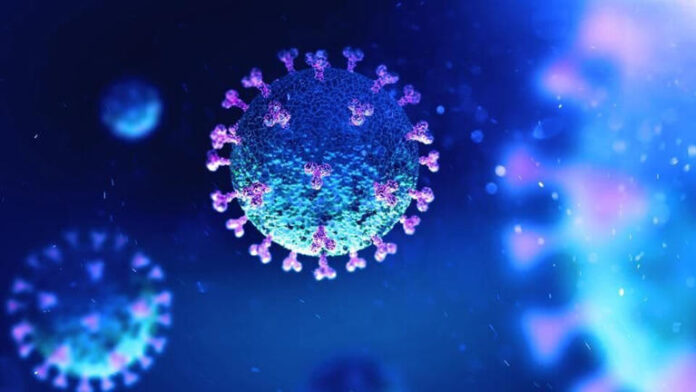Amid reports of a human metapneumovirus (HMPV) outbreak in China, India’s leading virologist Dr. Saumitra Das has clarified that while the virus warrants caution, it does not pose a threat comparable to Covid-19. Dr. Das, professor and chair at the Department of Microbiology and Cell Biology at the Indian Institute of Science, emphasized that HMPV is not a novel virus and has been under surveillance since its discovery in 2001.
Speaking to News18, Dr. Das explained, “HMPV was first identified in an infant patient in 2001, causing respiratory illness. Since then, it has been monitored and has not caused any significant outbreak until now, as reported by China.” He further noted that this is the first time since 2001 that the virus has led to a suspected outbreak.
Dr. Das outlined the typical progression of HMPV infection, which starts with common cold-like symptoms and can escalate to bronchiolitis or pneumonia in individuals with weak immunity.
“HMPV infection will first present with symptoms similar to a common cold. In severe cases, especially in immunocompromised individuals, infants, or the elderly, it can lead to bronchiolitis or pneumonia,” he said. However, he reiterated that HMPV is not as severe as SARS-CoV-2, the virus responsible for the Covid-19 pandemic.
“While HMPV causes influenza-like illness (ILI) or severe acute respiratory infections (SARI) in some cases, it is generally not as harsh as SARS-CoV-2. Treatment for HMPV is mostly symptomatic during the initial stages,” Dr. Das added.
Dr. Das, who is also the co-chair of the Indian SARS-CoV-2 Genomics Consortium (INSACOG) advisory board, believes that India is well-prepared to monitor HMPV using the existing genomic surveillance infrastructure. The INSACOG network, initially established for coronavirus genome sequencing, can be repurposed to track HMPV if needed.
“The Indian SARS-CoV-2 Genomics Consortium (INSACOG) includes over 50 laboratories dedicated to monitoring genomic variations in viruses. This network can be activated for HMPV surveillance if required, with appropriate approvals,” Dr. Das said.
The virologist also highlighted that routine respiratory virus surveillance is already being conducted through the Integrated Disease Surveillance Program (IDSP) and various Indian Council of Medical Research (ICMR) centres. “Sewage surveillance could be another method to detect HMPV if necessary,” he suggested.
Explaining the genetic makeup of HMPV, Dr. Das said the virus has two major genotypes: genotype A and genotype B, each further divided into sub-genotypes. “In India, reports suggest the presence of genotypes A 2.2.1 and A 2.2.2. However, the prevalence of these strains in our population needs further investigation,” he said.
Regarding testing, Dr. Das noted that existing methods like RT-PCR and ELISA are sufficient to detect HMPV infections. “There is no immediate need for genome sequencing of HMPV. However, if the situation changes, INSACOG’s network can be activated,” he said.
Reassuring the public, Dr. Das emphasized that HMPV does not pose a Covid-19-level threat. “At this moment, HMPV is not as infectious or lethal as SARS-CoV-2. While some strains may cause severe illness in vulnerable populations, there is no indication that any HMPV variants are significantly more dangerous.”
He stressed the importance of vigilance, particularly during the festive season, which typically sees a rise in respiratory infections due to increased social interactions. “During Christmas and New Year’s Eve, people gather in large numbers, often spreading cold and flu viruses unintentionally. We need to apply the lessons learned from the Covid-19 pandemic and be cautious,” Dr. Das said.
Dr. Das advised that people experiencing cold or flu symptoms should take preventive measures to avoid spreading the infection. “If someone catches a cold – be it Covid-19, HMPV, or another virus – they should isolate themselves to break the chain of transmission. Wearing a mask can also protect vulnerable individuals,” he said.
Addressing the current status of Covid-19 in India, Dr. Das revealed that there are only four active cases nationwide. He noted that Covid-19 has now become a flu-like illness, and people are less likely to seek medical diagnosis for mild symptoms.
“Covid-19 infections will continue to occur, but they are unlikely to cause significant damage as most of the population is now familiar with handling the disease. Random testing of international travellers, covering about 2% of arrivals, is still being conducted to monitor any new variants,” Dr. Das added.



